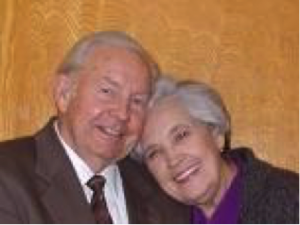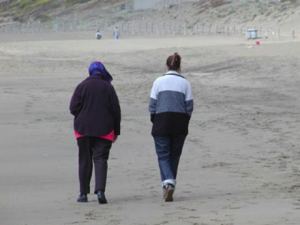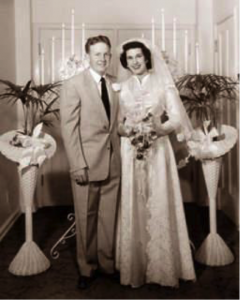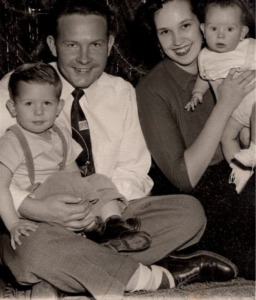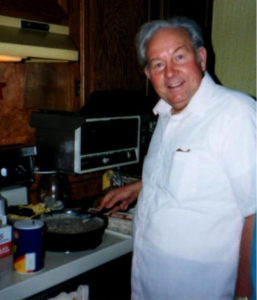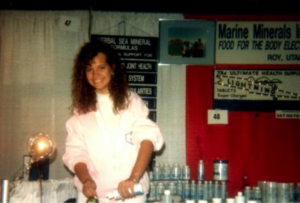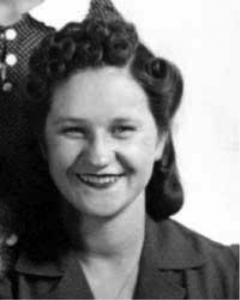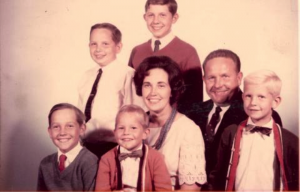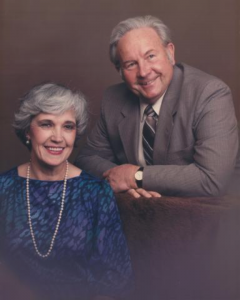Parenthood, pt 1: Love multiplies
Submitted by admin on Sat, 11/12/2011 – 17:56
The first in a series of essays on lessons in parenting from my dad, Hartley Anderson
Over sandwiches a few weeks ago, a colleague and I got talking about how much we appreciated our parents and I couldn’t help but say, “I think my dad should be a legend in fatherhood.” Sure, I may be partial, but in this realm maybe a daughter’s opinion counts. This got me thinking about how he went about it. So on what would have been his 81st birthday I started to write this first essay in a series of lessons I learned from him, a regular guy and extraordinary father. Here goes.
Growing up, I think I sensed that I was lucky to have him, but a Facebook exchange with my second cousin Guynella reinforced that my dad really did have a gift. She told me that when she was a little girl, she did not have a dad around. Whenever she made stuff in school meant for fathers, she would save the projects up and then present them to him when he visited. I can just picture him beaming, like they were the best gifts he had ever received. In those moments, they probably were.
I cried when I read that. He was my full-time dad, but he had so much capacity to love and I always felt a swell of pride when he included other people. “He’s mine, and he can be yours too.”
Guynella’s grandmother and mine were sisters, making Hartley and her mom first cousins. They remained important in each other’s lives, even though we lived in Utah and they in Southern California. My folks traveled a lot for business, and whenever we got within 100 miles, usually two or three times a year, we made a visit. I also think my dad had a special place in his heart for them and wanted to make sure they were okay. They lived in a violent neighborhood and before they moved in the late 1980s, I remember graphic stories about gang wars. I was terrified when I heard that the kids had walked to school around the body of a guy with his guts shot out, twice in a single month. So my cousins weren’t always attending school and there was a lot of coming and going in their house. I have an image of Guynella as a very tough 14-year old girl, fighting with my dad when he came to pick up the two younger kids who would spend a school year with us in Utah. He had hoped giving them a little time away from that environment would help. That’s how it was in our family. No matter how strapped for cash we were or how crowded the house with seven of their own kids and a business in our basement, more were welcome. So I shared my room with a cousin for a school year and her brother was in my same grade. I’d never had family in my same school and I loved it. I can’t pretend to know how they felt about it, but I remember having great adventures with them in the snow that winter.
Well, Guynella’s mother passed away a few years before my dad, and we’ve reconnected as family again. About a week ago she posted a photo montage in honor of my father and that’s what got us chatting about it. After all these years, it meant so much that she would post a tribute to my father.
It wasn’t just with my cousins, either. I can’t tell you how many people lived with us at one time or another. My brother’s troubled buddy who got kicked out in high school, a Navajo teenager who lived with us for a summer, and Thao our informally adopted Vietnamese brother who fled during the war. I was always allowed to bring a friend or two on camping trips. The examples go on and on, but you get the idea.
I bet every kid who spent time in our home felt special to him. They should, because they were.
There was another thing too. Hartley had a rule about parties: invite everyone in the neighborhood your age. No exceptions. It didn’t matter if someone was your mortal enemy. She got an invitation. If there was a snotty-nosed little sister who would be hurt, she was invited too. “Nobody gets left out on my watch.” God bless my parents, sometimes this meant suffering through a dozen shrieking 11-year olds trying to stay up all night. Then he woke up all chipper to make us hot cakes. That man had better have some kind of grade-A heaven now for the slumber parties alone.
In truth, if my parents didn’t have the, “hey what’s one more?” attitude, I wouldn’t be here. I wasn’t in the plan. The story goes that my parents were sooooo done having kids when I came whispering in my mom’s ear. She was 41 and Dad was 45 when I was born. There’s a big gap between Val and I, and another gap between Val and Bruce. They already had six kids. They had earned their stripes. There was no money for another baby. They were exhausted with a fledgling business. Still, my mom says that somehow in heaven I harassed her until they agreed to have me. They might have easily said, “Sorry, we can only invite six to this party,” but maybe I knew they couldn’t turn away a kid who needed a home.
I’ve heard people argue that it’s irresponsible to have a big family because there isn’t enough attention to go around. I imagine it probably is hard, but I know unequivocally that the world would be very different if everyone grew up with as much love and attention as we all got. We all thought we were the favorite child and I suspect we all probably were.
Love has a funny kind of math. There is no subtraction or division, only addition and multiplication. My parents lived the idea that as soon as you try giving some away, it comes back to you bigger. Love doesn’t divide, it multiplies.
